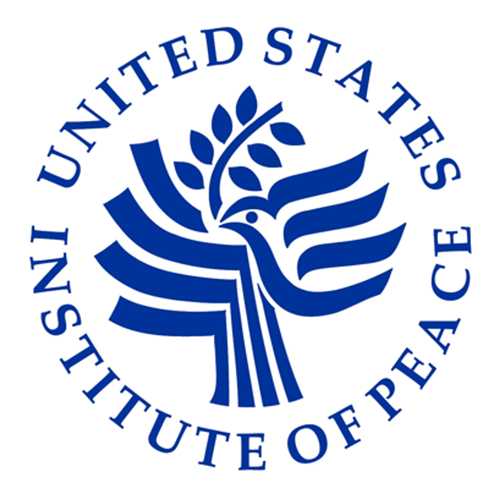The United States Institute of Peace recrute un Consultant, Local Conflicts Mapping Retour vers les opportunités
United States Institute of Peace
Lance Appel à candidatures, Offre d'emploiÉchéance
20 Février 2018 Il y a 8 ans
Partager l'opportunité sur
Détails de l'opportunité
The organization :
Peace is our commitment. The United States Institute of Peace represents the American people’s shared values and commitment to peace around the world. We know that Peace is Security – it advances both U.S. and international security by preventing, managing and mitigating violent conflict.
We were chartered in 1984 as an independent, non-partisan institution and are actively engaged with peacebuilding efforts around the world. Together we tackle the toughest problems and hold fast to the possibility of a more peaceful world.
The program :
USIP’s Tunisia Country Strategy focuses on building local capacities in transforming conflict. A key component of this includes supporting the Alliance of Tunisian Facilitators (ATF), a network of Tunisian facilitators who have a deep understanding of local dynamics and drivers of conflict, in preventing and mitigating outbreaks of violence. The program is also developing resources and tools for implementing community-led dialogues on both local and national levels.
Description of needs :
USIP is seeking a consultant that will conduct a mapping of local conflicts in six to eight Tunisian governorates, including: Tunis, Ben Arous, Kasserine, Kairouan, Gafsa, Sidi-Bouzid, Tataouine, and Mednine. Building on findings of previous conflicts mappings along with related research, the mapping aims at:
- Informing policies by sharing the findings with Tunisian policy makers, civil society, funders, and other organizations working on conflict transformation and peacebuilding.
- Enhancing peacebuilding programs of USIP and other actors by identifying concrete programmatic interventions to mitigate and prevent violence on both the local and national levels.
Methodology
The “mapping” should examine each conflict’s:
- Causes and conditions
- Stakeholders – their positions including identifying allies and opponents of amicable settlements
- Escalation and de-escalation factors and triggers
- Interplay with the national political and security dynamics
- Attempts, perspectives, and processes of amicable settlements
The consultant is expected to work in close coordination with the USIP-ATF steering committee (SC). The SC is responsible for approving the inception report, supporting the data collection process, and validating the findings of the conflict mapping exercise.
The SC is composed of the USIP project team and six ATF members. The SC will also recommend and liaise with the wider ATF network members to agree on a work-plan whereby resident-members of selected governorates will facilitate access, conduct interviews, and compile data. A time-bound mechanism of work is to be decided upon between the SC and the consultant prior to conducting the fieldwork.
Deliverables
The Consultant is expected to deliver the following:
- An inception report that outlines the proposed methodology, action plan, deliverables and timeline. The inception report will be reviewed and approved by the SC.
- A draft report in English (12,000-15,000 words) of the mapping that includes the following: Cover page; table of contents; list of acronyms/abbreviations; list of tables and charts; executive summary of key findings and programmatic recommendations, with reference to the methodology; the mapping findings structured around the following outline: Conflict location; timeline and brief historical background; apparent and underlying causes; current status (latent, active…); stakeholders, their positions; allies and opponents of amicable settlements; escalation and de-escalation factors and triggers; interplay with the national political and security dynamics; attempts, perspectives and processes of amicable settlement.
- The final version of the report will take into account all comments, questions or edits raised by the SC.
General Timeline of Deliverables
- March 10 – Submission of the inception report and methodology design
- March 10- April 20 – Data Collection
- May 15 – Submission of the draft report
- May 30 – Submission of final report
Additional Terms and Guidance
- It is highly encouraged to use visuals, such as charts, graphs and images as needed.
- Appendices, including: collected data, detailed description of the methodology with research instruments, list of interviewees, bibliographies.
- As the draft will be reviewed by the SC (USIP and ATF), the consultant should build enough time to account for the multiple exchanges on the draft including requests for additional information.
- The recommendations should be forward-looking and specific, outlining as such the relevance, feasibility, and challenges of the proposed interventions.
- The consultant is responsible for the quality and accuracy of the provided data.
- The consultant is responsible of the format as well as the English language editing of the final report.
- The report will be credited to the consultant and potentially placed in the public domain at the decision of the steering committee.
- All information such as tools, transcripts, contacts, photographs are considered USIP property.
- The consultant is required to uphold the highest standards of professionalism and integrity in undertaking this assignment.
- The consultant commits to refrain from discussing this project with third parties – including media outlets – without USIP being present or offering prior approval.
- USIP maintains full intellectual property rights and ownership under this assignment, including but not limited to tools, transcripts, contacts, photographs, reports, and others. This includes authorities related to distribution and sharing of property and other project materials, which remains at the discretion of USIP.
L'opportunité a expiré
Cette opportunité n'est malheureusement plus disponible sur Jamaity. Visitez régulièrement la rubrique opportunités pour ne plus en rater.
Plus d'informations
Lien de l'opportunitéSuivez Jamaity sur LinkedIn
Obtenez Jamaity Mobile dès maintenant

Appel à candidatures Offre d'emploi Publié sur Jamaity le 7 février 2018
Découvrez encore plus d'opportunités sur Jamaity en cliquant sur ce lien.

